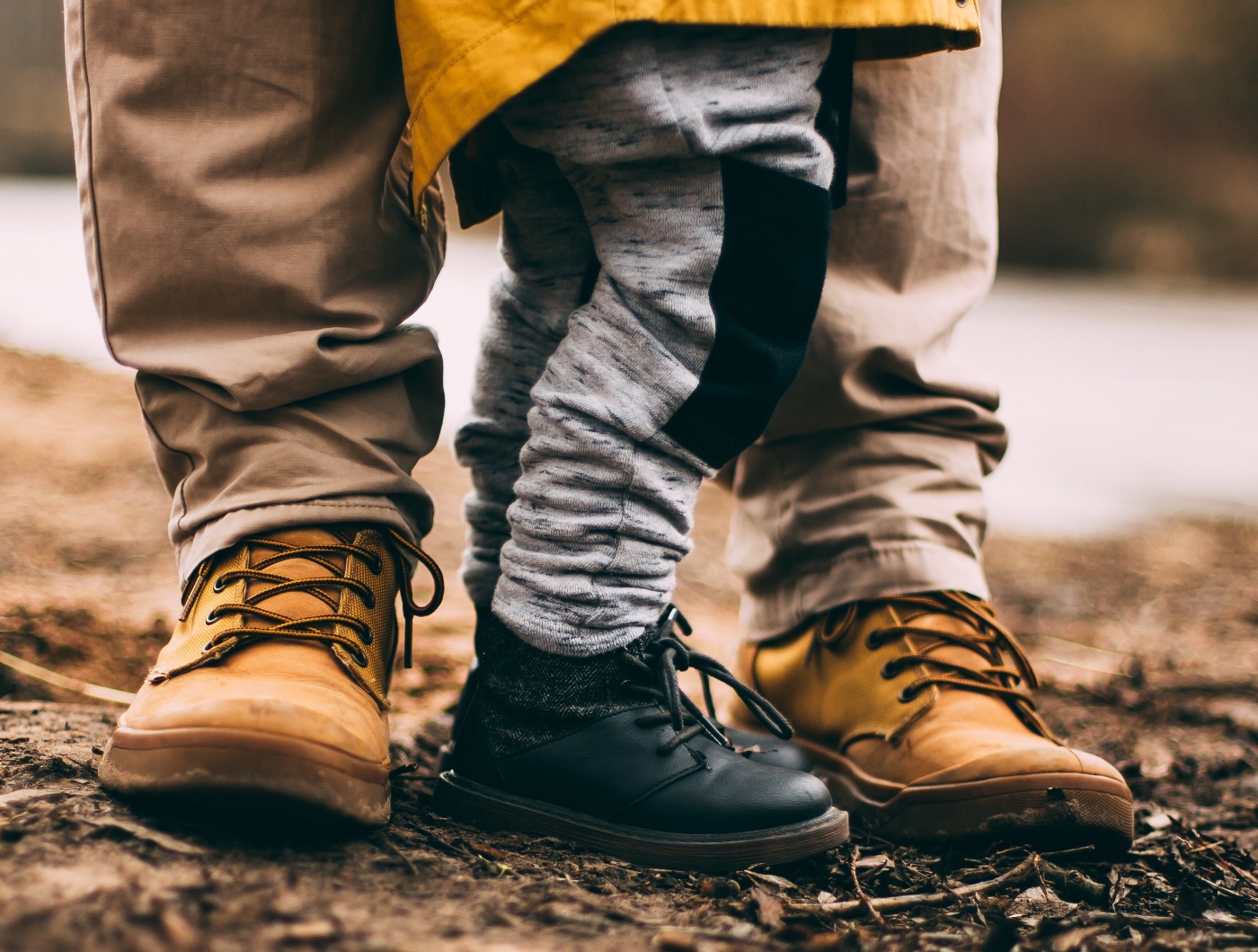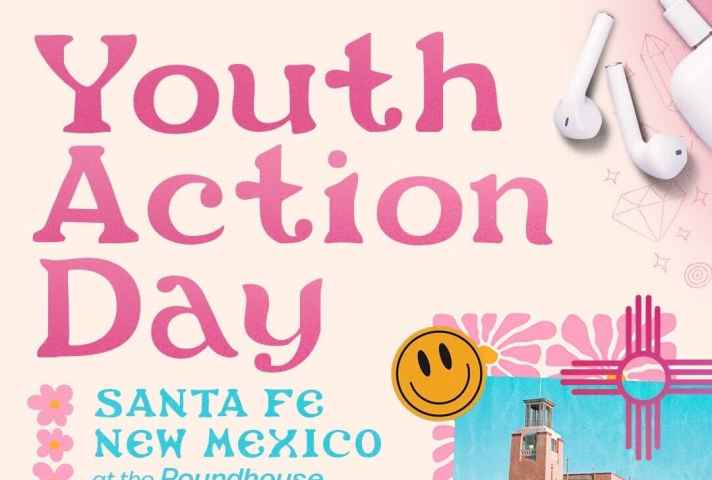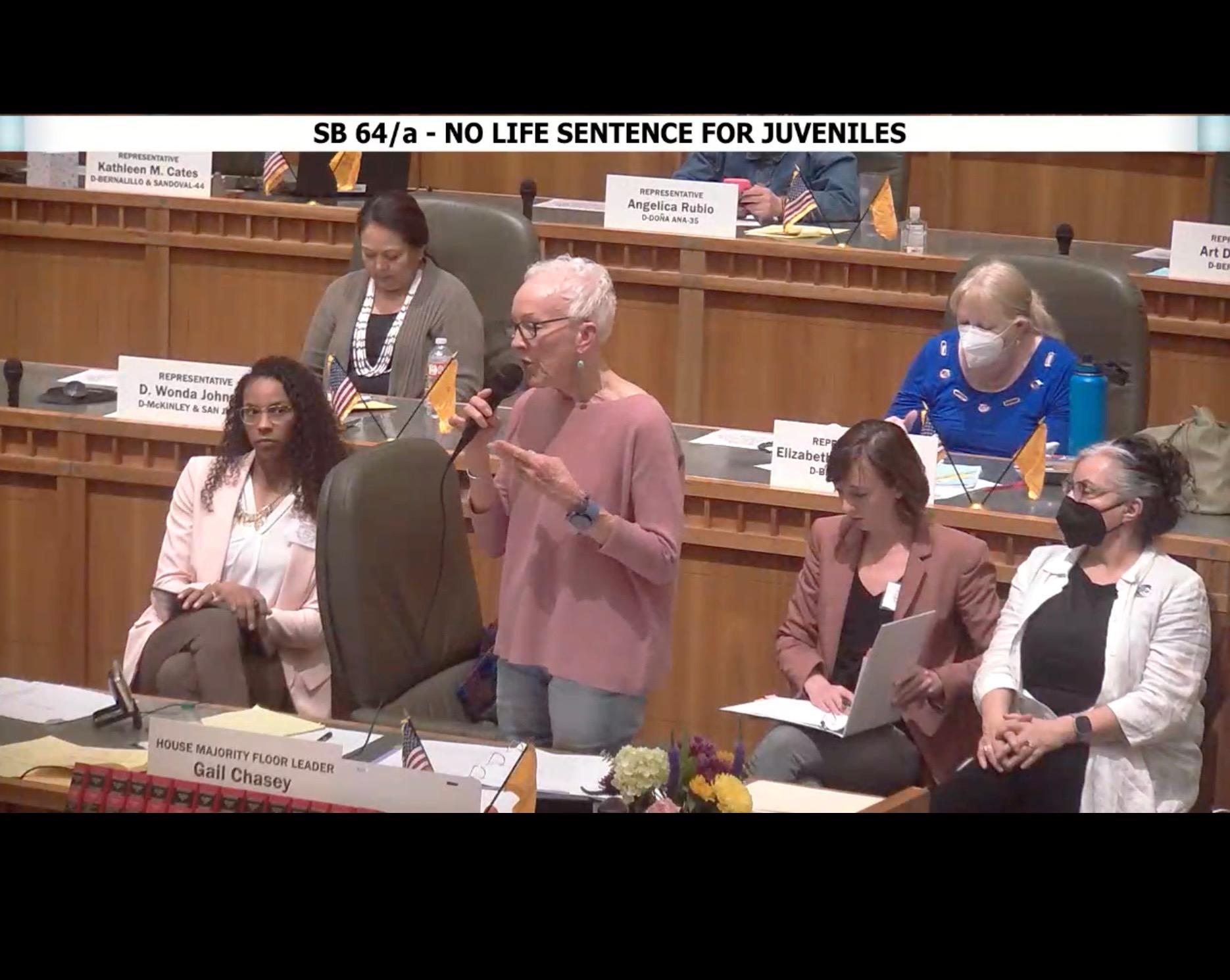Year after year, New Mexico legislators introduce a slew of failed, repackaged “tough on crime” policies aimed at public safety. We’re already seeing that trend in the 2024 legislative session, which kicked off on January 16. But rather than making our communities safer, they tear families apart and perpetuate cycles of poverty and generational trauma. In doing so, they can actually increase the chances that people will turn to criminalized behavior, creating the opposite of the intended effect.
These policies are not only harmful – they lack imagination and ingenuity. If punitive policies that lead to incarceration were the answer, New Mexico would be one of the safest places to live in the United States. It’s time our elected officials take bold action to proactively invest in systems that break the cycle of recidivism. Here’s what you need to know.
1. Incarceration causes psychological harm that is counterproductive to long-term stability
Jail and prison conditions are purposefully cruel, degrading, and inhumane. The ACLU of New Mexico and ACLU offices around the country have documented horrific cases of abuse in these settings including medical neglect, sexual assault, squalid conditions, retaliatory uses of solitary confinement, and mistreatment based on race, sex, gender identity, and disability.
"These policies are not only harmful – they lack imagination and ingenuity."
This cruelty both creates trauma and exaggerates it for the high percentage of people who enter prison with mental health conditions and histories of abuse, making it all the more difficult for them to get back on their feet and take care of their families after release. Moreover, research shows that rather than having a deterring effect, spending time behind bars can actually increase the likelihood of reoffending as a result of the trauma it creates.
2. Tough on crime policies that send people to prison cause generational trauma
A 2016 study by the Annie E. Casey Foundation found that 10 percent of New Mexico’s child population had a parent who was incarcerated at some point in their lives – a figure with devastating consequences.
In addition to increasing the chances of living in poverty, being unhoused, and going hungry, parental incarceration destabilizes children’s lives and increases the chances that they will have substance use disorders, diagnosable anxiety, and be charged with a felony.
Creating laws that increase incarceration rates will be bad for all New Mexico children, but it will disproportionately harm children of color whose parents are more likely to be arrested and incarcerated.
3, Incarceration creates financial burdens for entire families
Incarcerated people, who earn about between 10 cents and one dollar an hour in New Mexico, struggle to even buy themselves basic hygiene products, like soap and deodorant, to supplement inadequate provisions from the state. These costs and the additional financial burden imposed by court fines often fall on incarcerated people’s families, who also suffer loss of income while their loved one is away.
"Creating laws that increase incarceration rates will be bad for all New Mexico children..."
Of family members who are responsible for paying conviction-related costs for a loved one, 83% are women. These costs can cause difficulty putting food on the table, paying for childcare, and can even lead to loss of housing altogether.
When a person is released from prison, their struggle is far far over. They face severe obstacles to finding employment and housing as a result of legal restrictions and stigma associated with a criminal record that can make it all but impossible to turn their lives around.
4. Too many people are incarcerated for technical violations
About 30% of the incarcerated population in New Mexico is behind bars for violations of parole or probation conditions. 70% of the time, these are technical violations, such as failing to meet with a probation or parole officer or failing a drug test. Sending people back to prison who may have missed an appointment because they lack transportation or used drugs because they haven’t received proper treatment for their substance use disorder is a colossal waste of money and only sets people and their families up for failure.
"Research shows that rather than having a deterring effect, spending time behind bars can actually increase the likelihood of reoffending..."
Last year, the Senate and House passed a bill to end this practice, but Governor Lujan Grisham wrongly vetoed the bill. The millions of dollars wasted on incarcerating these people should instead be invested in addressing substance use disorders, behavioral health issues, generational trauma, and systemic inequalities – a move that will ultimately help keep families together and improve public safety.
5. Our money is better spent on diversion programs and housing security
Rather than saddling a person who has violated the law with insurmountable debt and a lifelong criminal record, we can address the underlying causes of their mistake. Diversion programs, which are much more cost effective than incarceration, redirect people away from the criminal punishment system, and instead provide them with services like case management, treatment for drugs and alcohol, and trauma-informed counseling.
Despite the evidence that these programs are effective at reducing recidivism and improving public safety, Governor Lujan Grisham issued a September public health order suspending a long-standing program that helps prevent young people from becoming involved with the juvenile justice system.
"Sending people back to prison who may have missed an appointment...is a colossal waste of money and only sets people and their families up for failure."
That is the opposite of what we should be doing. New Mexico’s elected officials should be creative and thoughtful in how they hold people accountable and continue to invest in scalable diversion program models that keep families together.
Secure housing is another critical avenue for keeping people out of jail and prison, as unhoused people, especially those experiencing mental illness, experience high rates of arrest and incarceration. After a recent end to federal eviction funding provided to states during the Covid-19 pandemic, even more New Mexicans will be at risk for homelessness. The recent creation of a council to address housing insecurity is a great first step, but the state still must do more to ensure that families have a safe roof over their heads. They must also stop passing laws, like the one the governor recently proposed, that will only ensure homeless people will continue to be unfairly and illegally arrested and jailed.
Date
Thursday, January 18, 2024 - 11:15amFeatured image



